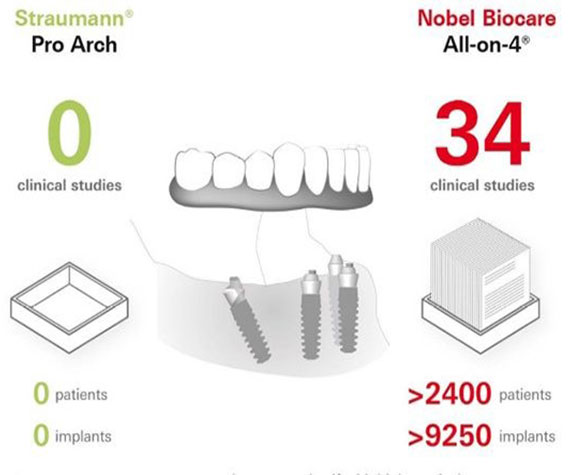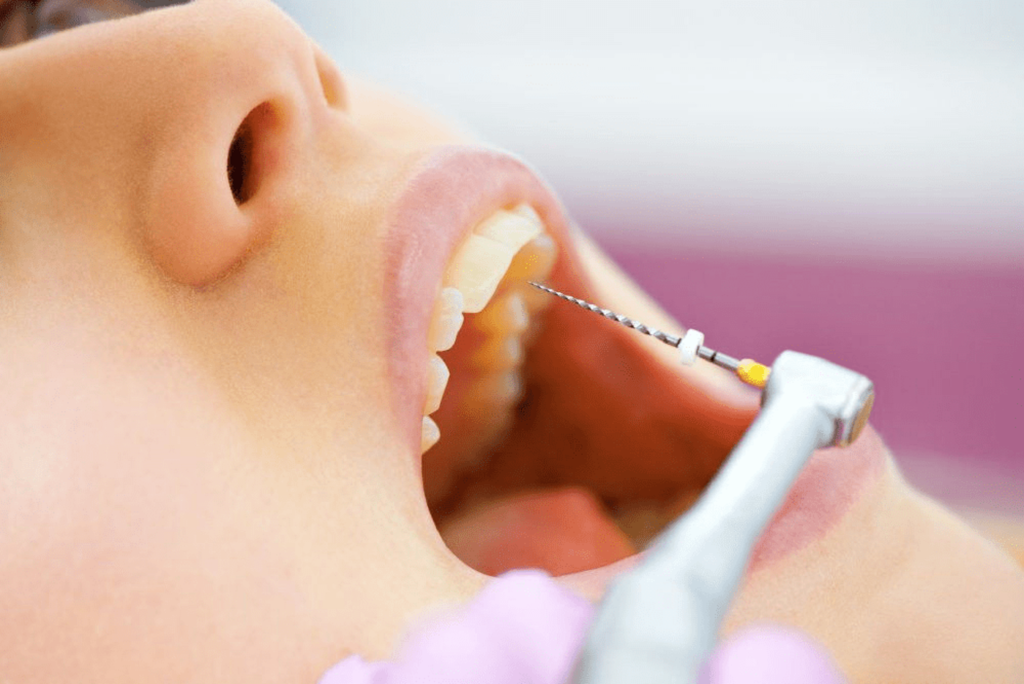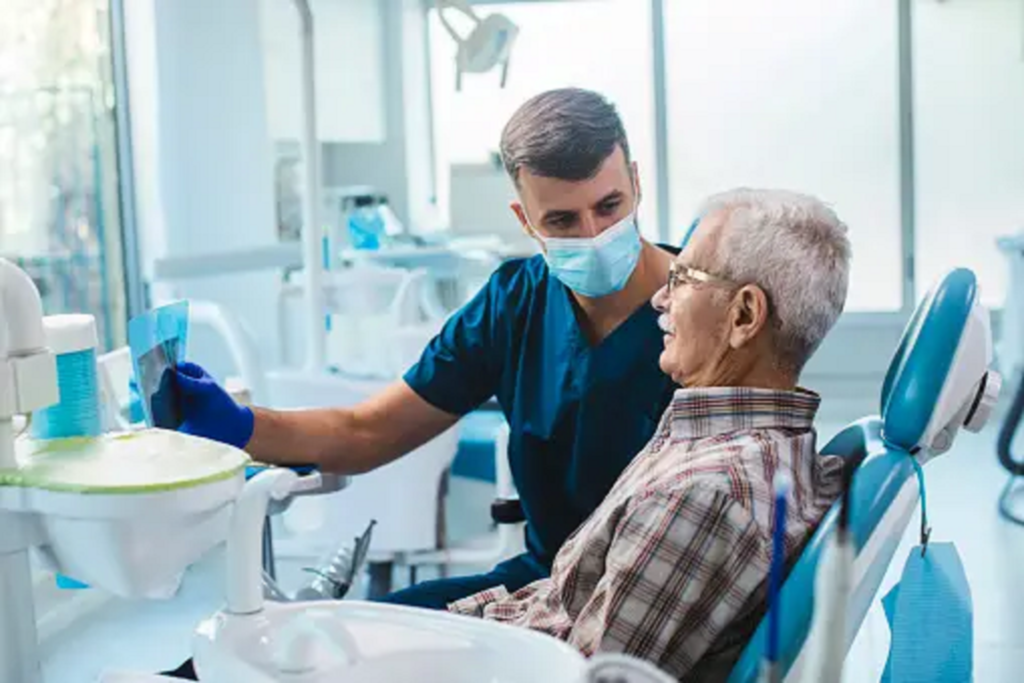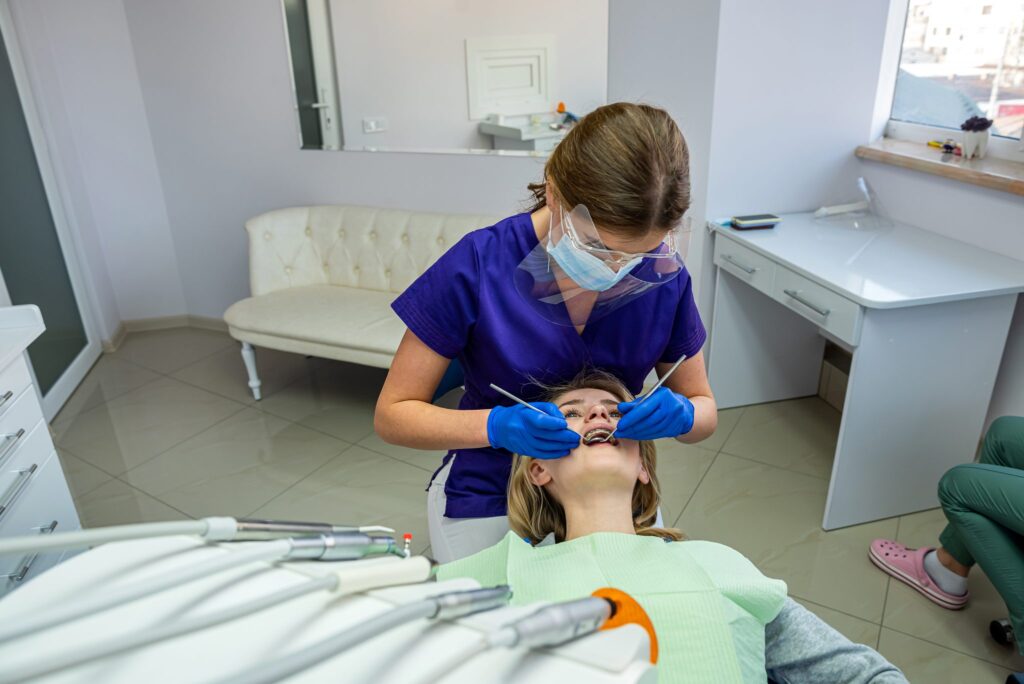What Do Dental Specialists Do?
Karmanya DewanganOctober 19, 2023
Dental health is a crucial aspect of overall well-being, and in the picturesque city of Bilaspur, Chhattisgarh, it is no exception.
Bilaspur is known for its cultural diversity, stunning landscapes, and vibrant community.
As residents of this beautiful city, it’s essential to prioritize our oral health.
Dental implants have emerged as a revolutionary solution in the field of dentistry, offering numerous benefits to individuals who require tooth replacement.
In this blog, we’ll explore the importance of dental implants in Bilaspur and why they have become a popular choice for restoring smiles and oral health.
What do Dental Specialists do?

Dental specialists are highly trained and skilled professionals who focus on specific areas of dentistry beyond the general practice.
They undergo additional education and clinical training in their chosen specialty to provide specialized care for patients.
Here are some common dental specialties and what dental specialists in those areas typically do:
The Role of a General Dentist:

A general dentist plays a central role in maintaining oral health and preventing dental issues.
Their responsibilities include routine check-ups, cleanings, and addressing common dental concerns.
They serve as the primary point of contact for patients and may refer them to specialists when needed.
Different Types of Dental Specialties:
1. Orthodontists:

Orthodontists are dental specialists who focus on the alignment of teeth and correction of bite issues, playing a crucial role in enhancing both oral aesthetics and functionality.
These experts specialize in diagnosing misalignments, irregularities, and bite problems using diagnostic tools like X-rays and impressions.
Once a diagnosis is made, orthodontists develop personalized treatment plans, often incorporating braces, clear aligners, or other appliances to address specific issues.
Their expertise extends to correcting various bite problems, including overbites, underbites, and crossbites, contributing to improved oral function and preventing related issues like jaw pain.
Orthodontists are skilled in designing, placing, and adjusting braces and other orthodontic appliances, continually monitoring progress through regular check-ups.
2. Periodontists:

Periodontists are dental specialists with expertise in the prevention, diagnosis, and treatment of diseases affecting the gums and supporting structures of teeth.
Their primary focus is on periodontal health, addressing conditions like gingivitis and periodontitis that can lead to inflammation, infection, and eventual tooth loss if left untreated.
These specialists perform a range of procedures aimed at preserving gum health, including scaling and root planing to remove plaque and tartar, and surgical interventions such as gum grafts and pocket reduction surgery.
Periodontists also specialize in the placement of dental implants, providing effective solutions for individuals with missing teeth.
In addition to clinical care, periodontists play a crucial role in educating patients on proper oral hygiene practices to prevent and manage periodontal issues.
They often collaborate with general dentists and other specialists to ensure comprehensive dental care for patients.
3. Endodontists:

Endodontists are dental specialists who specialize in the field of endodontics, focusing on the diagnosis and treatment of issues related to the dental pulp and root canal system.
Their expertise lies in addressing problems such as infected or inflamed pulp, which, if untreated, can lead to severe pain and the potential loss of a tooth.
These specialists perform root canal procedures, a meticulous process involving the removal of infected pulp, cleaning and shaping the root canals, and sealing the tooth to prevent further infection.
Endodontists utilize advanced techniques and technologies, including digital imaging, to diagnose and treat complex cases effectively.
Beyond root canal therapy, endodontists also handle procedures like apicoectomies (surgical removal of the tooth’s apex) and addressing dental traumas that affect the pulp.
They play a crucial role in preserving natural teeth, contributing to both oral health and overall well-being.
4. Oral and Maxillofacial Surgeons:
Oral and Maxillofacial Surgeons are dental specialists with advanced training in surgical procedures related to the mouth, jaws, face, and neck.
They play a crucial role in addressing complex dental and facial conditions that go beyond the scope of routine dental care.
These specialists perform a variety of surgical interventions, including tooth extractions (including impacted wisdom teeth), corrective jaw surgeries to address misalignments, and facial reconstructions following trauma or congenital issues.
Oral and Maxillofacial Surgeons are also skilled in managing oral pathologies and diseases, offering surgical solutions when necessary.
In addition to their surgical expertise, these specialists often collaborate with other dental professionals, including orthodontists, periodontists, and prosthodontists, to provide comprehensive care for patients with multifaceted dental needs.
They may also be involved in the placement of dental implants, contributing to the restoration of missing teeth.
5. Prosthodontists:

Prosthodontists are highly specialized dental professionals dedicated to restoring and enhancing the oral function, aesthetics, and overall quality of life for patients with missing or damaged teeth.
Their expertise lies in the design, fabrication, and fitting of dental prosthetics, including dentures, bridges, and dental implants.
These specialists meticulously assess patients’ oral conditions, considering factors such as jaw alignment, facial structure, and the health of surrounding teeth.
Prosthodontists work closely with patients to develop personalized treatment plans, addressing individual needs and preferences to achieve optimal results.
Prosthodontists not only focus on functional restoration but also prioritize aesthetic considerations, ensuring that the dental prosthetics blend seamlessly with natural teeth for a harmonious and natural-looking smile.
6. Pediatric Dentists (Pedodontists):

Pediatric Dentists, also known as Pedodontists, are specialized dental professionals focused on the oral health and well-being of children from infancy through adolescence. These experts play a crucial role in creating positive dental experiences for young patients, laying the foundation for a lifetime of good oral hygiene habits.
Pediatric Dentists undergo specialized training to address the unique dental needs of children, including the monitoring of tooth development, preventive care, and early intervention for any emerging dental issues.
They create a child-friendly environment to ease anxiety and ensure a comfortable dental visit for young patients.
These specialists offer a range of services, including routine check-ups, cleanings, fluoride treatments, and education on proper oral care practices.
Pediatric Dentists also address specific pediatric dental concerns, such as thumb-sucking habits, early orthodontic evaluations, and cavity prevention.
7. Oral Pathologists:

Oral Pathologists are dental specialists with expertise in diagnosing and managing diseases and conditions affecting the oral and maxillofacial regions.
These professionals play a crucial role in understanding and interpreting oral tissue abnormalities, providing essential insights for effective treatment and management.
Utilizing advanced diagnostic techniques such as biopsies and imaging, Oral Pathologists investigate a wide range of oral diseases, including oral cancers, infections, and autoimmune disorders.
They collaborate with general dentists, oral surgeons, and other specialists to ensure accurate diagnoses and comprehensive treatment plans.
8. Dental Anesthesiologists:

Dental Anesthesiologists are specialized professionals within the field of dentistry who focus on administering anesthesia and managing pain for dental procedures.
These experts play a crucial role in ensuring patient comfort, particularly for individuals undergoing extensive dental treatments, surgeries, or those with dental anxiety.
These professionals possess in-depth knowledge of various anesthesia techniques and medications tailored to the specific needs of dental patients.
Their expertise allows them to provide pain management solutions that range from local anesthesia for routine procedures to general anesthesia for more complex surgeries.
9. Public Health Dentists:

Public Health Dentists are dental professionals with a specialized focus on promoting and improving oral health at a community and population level.
These practitioners play a vital role in implementing preventive measures, educational programs, and policies that contribute to the overall well-being of communities.
Public Health Dentists engage in community-based initiatives to address oral health disparities and enhance access to dental care.
They collaborate with public health organizations, government agencies, and community stakeholders to develop strategies that promote oral hygiene, prevent dental diseases, and raise awareness about the importance of oral health.
10. Cosmetic Dentists:

Cosmetic Dentists specialize in enhancing the aesthetic appearance of smiles, focusing on procedures that improve the color, shape, size, and overall visual appeal of teeth.
These dental professionals combine artistry with dental expertise to create beautiful and natural-looking smiles for their patients.
Cosmetic Dentists offer a range of treatments, including teeth whitening, veneers, bonding, and gum contouring, aiming to address cosmetic concerns and boost patients’ confidence.
They work closely with individuals to understand their aesthetic goals and customize treatment plans to achieve the desired results.
FAQ: Dental Specialists
What are Specialist Dentists?
Specialist dentists are highly trained professionals who have pursued additional education and clinical training in specific areas of dentistry.
They focus on specialized treatments and procedures related to their chosen dental specialty.
Does It Mean General Dentists Are Less Skilled?
No, general dentists are skilled professionals who provide a broad range of dental services.
They play a crucial role in preventive care and are often the first point of contact for patients.
Specialist dentists have additional training in specific areas, allowing them to address complex cases.
Why might I need to see a specialist instead of a general dentist?
If you have a specific dental concern that requires advanced or specialized treatment, a specialist is trained to address that particular issue. General dentists often refer patients to specialists when needed.
Is visiting a specialist more expensive than seeing a general dentist?
The cost of dental care can vary based on the type of treatment needed. Specialists may charge more for their expertise, but the overall cost depends on the specific procedure and its complexity.
How do I know if I need a prosthodontist for my dental issues?
If you have concerns related to missing or damaged teeth and require restorative solutions like dentures, bridges, or dental implants, consulting with a prosthodontist is advisable.
Are the procedures performed by dental specialists more complex or risky?
Specialized procedures may be more intricate due to the focus on specific areas of dentistry. However, specialists are highly trained professionals who follow stringent safety protocols, ensuring the best possible outcomes.
Can I still see a general dentist for routine check-ups even if I’ve been to a specialist?
Yes, it is recommended. General dentists play a crucial role in preventive care and overall oral health. They can continue to monitor your dental health and address routine concerns even if you’ve received specialized treatment.
How do I choose the right specialist for my dental needs?
Consult with your general dentist first, who can assess your situation and refer you to an appropriate specialist if necessary. Consider the specific expertise of the specialist and their experience in handling cases similar to yours.
Are general dentists less skilled than specialists?
No, general dentists are skilled professionals trained to provide a wide range of dental services. Specialists have additional training in specific areas, making them experts in those fields. Both play essential roles in comprehensive dental care.
Do dental specialists accept dental insurance?
In most cases, dental specialists do accept insurance. However, it’s advisable to check with the specialist’s office and your insurance provider to understand coverage details and potential out-of-pocket expenses.
Conclusion: Dental Specialists
The importance of dental implants in Bilaspur cannot be overstated.
both general dentists and dental specialists play vital roles in maintaining oral health.
General dentists offer comprehensive care, while specialists provide advanced treatments for specific dental issues.
The collaboration between general and specialist dentists ensures that patients receive the most appropriate and effective care tailored to their individual needs.
They offer a comprehensive solution to various dental issues, from functional restoration to aesthetic enhancement.
With the ability to improve the quality of life, boost self-esteem, and promote oral health, dental implants have become a sought-after choice for residents of Bilaspur.
By choosing this innovative dental solution, individuals in Bilaspur can enjoy a vibrant, confident smile and maintain their oral health for years to come.
Categories: blog_post
